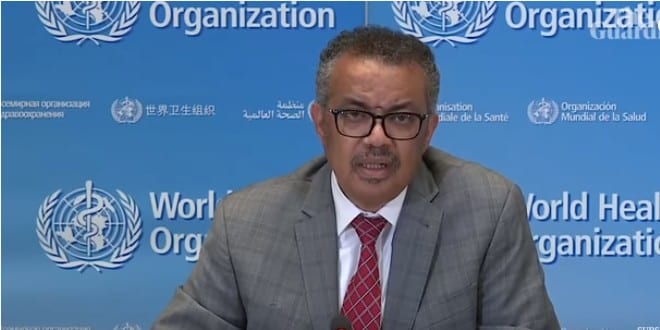The curriculum suggested by the United Nations health organization promotes aberrant sexuality for children, claiming their guidelines supersede those of the parents. This takes on chilling implications when considering the history of rape and pedophilia within the organization.
In the wake of the organization mishandling the ongoing COVID-19 pandemic, President Trump removed US funding from the World Health Organization (WHO). Many people criticized the decision but a closer look shows that not only is the WHO incompetent at performing the function for which it was created but it has side agendas that are shocking indeed. One such program that began more than ten years ago is focused on indoctrinating children under the age of four in the “enjoyment and pleasure of masturbation” and that even for children, sexuality is a “normal part of everyone’s life.”
The WHO Collaborating Centre for Sexual and Reproductive Health, established in 2003 at the German Federal Centre for Health Education (BZgA) focused on establishing standards for sexuality education, providing guidance for implementation and support the implementation of training programs for educators. The program has been translated into several languages and used internationally. The program was produced in a framework document for the development of sexuality education. It has been used in at least 14 countries to develop or adapt curricula for sexuality education and/or for advocacy towards decision-makers.
The WHO curriculum suggests that children ages four to six, the be given information “about friendship and love towards people of the same sex” and “same-sex relationships,” and be guided to develop “an open, non-judgmental attitude.”
As per this program, children under the age of four are introduced to masturbation including “playing doctor” (i.e. sexual activity with another person of unspecified age). Children from 4-6 are introduced to “same-sex relationships” (i.e. homosexuality).
The WHO also removes the authority of the parents in such matters, establishing its standards as superseding those.
“As argued,” reads the document, “parents, other family members, and other informal sources are important for learning about human relationships and sexuality, especially for younger age groups.
“However, in modern society, this is often insufficient, because these informal sources themselves often lack the necessary knowledge, particularly when complex and technical information is needed (such as that pertaining to contraception or transmission modes of STI).”
In 2018, Andrew MacLeod, the former chief of operations at the UN’s Emergency Co-ordination Center claimed that an estimated 60,000 cases of sexual exploitation had been committed over the last decade by 3,300 pedophiles working in the organization.
“Child rape crimes are being inadvertently funded, in part, by United Kingdom tax-payers,” he said in an interview with British tabloid The Sun. At the same time, UN Secretary-General António Guterres admitted that the UN had “wrestled for many years with the issue of sexual exploitation and abuse,” as reported by the British newspaper The Times. In early 2017 the United Nations Secretary-General admitted to 145 incidents involving 311 victims in 2016 alone, mainly in peace operations.
In one case that is disturbingly relevant to the WHO education program, Canadian humanitarian worker Peter Dalglish, who helped found the charity Street Kids International, was taken in by police in Nepal over claims he was involved in pedophile activities in Kavre district, around 50 kilometers north of the capital, Kathmandu.
“Under the guise of community worker, claiming to educate poor kids and provide necessary support, he had been sexually exploiting these children. We have developed a sound network to track down and arrest pedophiles entering Nepal. We had been following Dalglish’s activities for the last two weeks after we were tipped about his activities,” CIB chief and Deputy Inspector General of Police, Pushkar Karki said, according to the Kathmandu Post.
Prior to his stint in Nepal, he had worked for a number of United Nations agencies and was the U.N.-Habitat country representative for Afghanistan.
He was also part of the U.N. Mission for Ebola Emergency Response in Liberia until January 2016 and has been an advisor to the World Health Organization to help tackle the spread of the disease.
Source: Israel in the News

